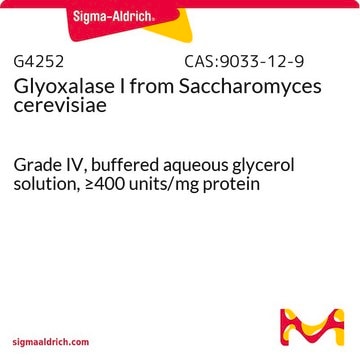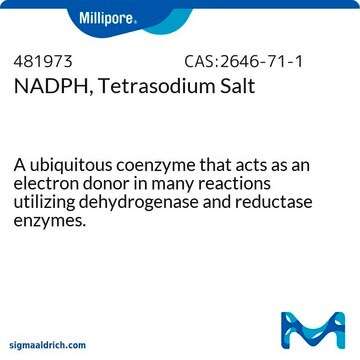MAK114
Glyoxalase I Activity Assay Kit
sufficient for 100 tests (UV)
Synonym(s):
Aldoketomutase Activity Assay, GLO1 Activity Assay, Ketone-Aldehyde Mutase, Activity Assa, Lactoylglutathione Lyase Activity Assay, Methylglyoxalase Activity Assay
About This Item
Recommended Products
usage
sufficient for 100 tests (UV)
detection method
colorimetric
relevant disease(s)
cancer
storage temp.
−20°C
Gene Information
human ... GLO1(2739)
mouse ... GLO1(109801)
rat ... GLO1(294320)
General description
Application
Features and Benefits
Suitability
Principle
Signal Word
Warning
Hazard Statements
Precautionary Statements
Hazard Classifications
Eye Irrit. 2 - Muta. 2 - Skin Sens. 1
Storage Class Code
12 - Non Combustible Liquids
Certificates of Analysis (COA)
Search for Certificates of Analysis (COA) by entering the products Lot/Batch Number. Lot and Batch Numbers can be found on a product’s label following the words ‘Lot’ or ‘Batch’.
Already Own This Product?
Find documentation for the products that you have recently purchased in the Document Library.
Our team of scientists has experience in all areas of research including Life Science, Material Science, Chemical Synthesis, Chromatography, Analytical and many others.
Contact Technical Service








